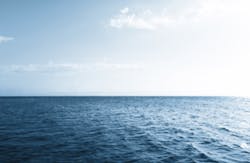GE desalination plant provides drinking water in Caribbean
TREVOSE, Pa. — GE will participate in a seawater desalination plant expansion with its water filtration equipment on the Caribbean island of Bonaire, according to a press release.
Water and Energy Company Bonaire’s (WEB) plant, about 80 kilometers north of Venezuela, provides drinking water for the entire island, noted the release. GE operates the facility under a "build, own, operate" contract.
As the island’s water needs grow, the new plant will supply 1,600 cubic meters of desalinated water per day, shared the release. The Netherlands governs Bonaire as a special municipality.
"Our goal is to become self-sufficient with drinking water production and to support the growing needs of residential and business customers on the island," said Alfredo Koolman, CEO of WEB. "We selected GE because of its desalination technology expertise and its familiarity with our existing operation. This project moves us closer to eventually having the capability of owning and operating our own desalination facility."
GE’s seawater solution includes six multimedia filters, two reverse osmosis (RO) units, two modified brackish water RO units with MCC and PLC systems, stated the release. The equipment is skid-mounted and can be moved if WEB develops a new plant in the future.
"We are pleased to offer our advanced [RO] membrane solution to help WEB Bonaire expand its desalination plant to meet the island’s future clean water requirements," said Yuvbir Singh, general manager, engineered systems — water and process technologies for GE Power & Water, in the release. "With clean water more precious than ever around the world, our solutions can deliver reliable supplies of fresh water from just about any salt water source, including seawater."
